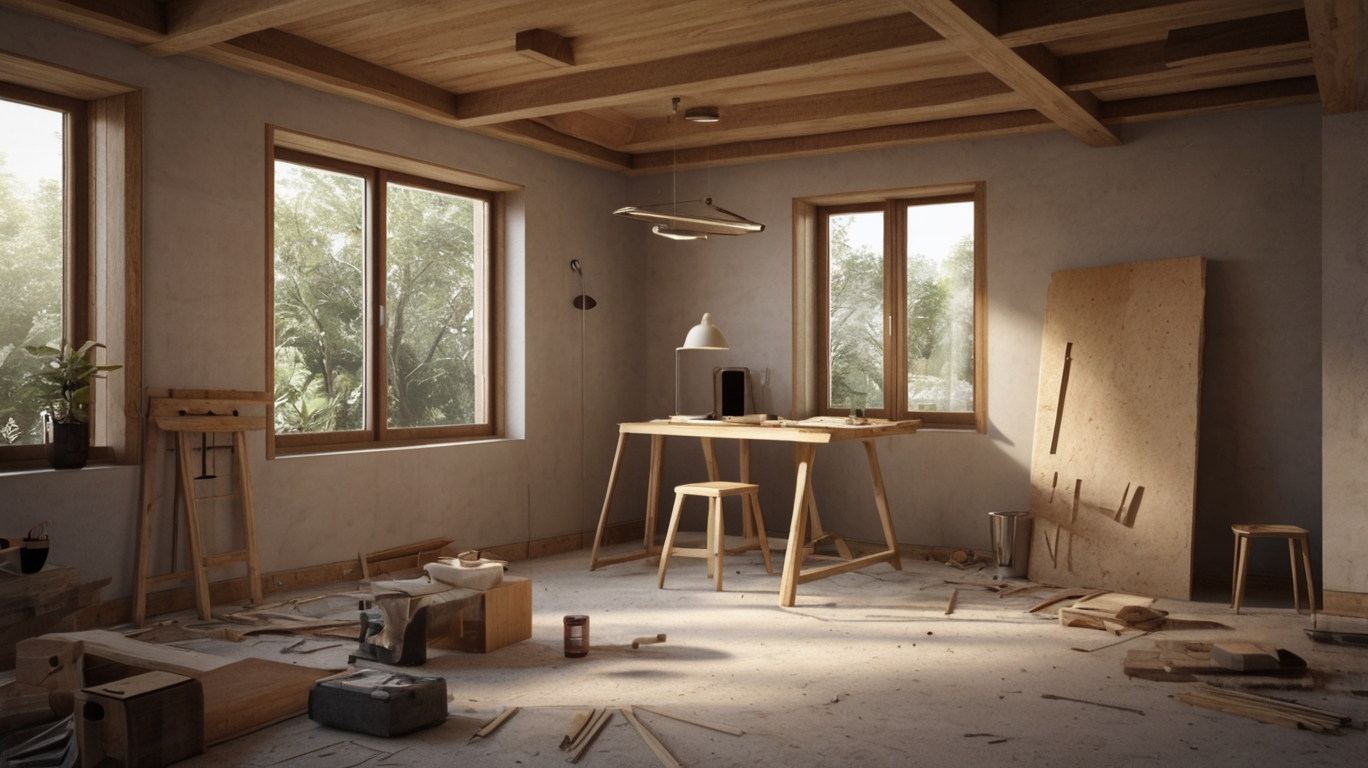Everything You Need to Know
When it comes to creating your dream home, one of the biggest questions homeowners face is: Is it cheaper to build a new house or renovate an existing one? The answer isn’t as easy as you might think. Each option has its pros and cons depending on your budget, goals, location, and the current condition of the property.
In this blog, we’ll break down everything you need to know to make the most informed decision financially and practically.
Understanding the Costs: Build vs. Renovate
The cost comparison between building a new house and renovating an existing one often depends on several factors, including location, materials, labor, permits, and your desired features.
Building a House:
Building a new home gives you a clean slate. You have the freedom to design a layout that suits your lifestyle, use modern materials, and avoid any hidden structural issues.
Pros:
- Complete design freedom
- No surprises with existing damage or outdated systems
- Modern energy efficiency and compliance with current building codes
Cons:
- Higher upfront costs
- Longer time frame due to design, permits, and construction
- May require purchasing land, which can be expensive
Average Cost: According to industry data, the average cost to build a new home in the US ranges between $150 to $250 per square foot, depending on materials and finishes. High-end custom homes can easily go beyond $400/sq ft.
Renovating a House:
Renovation can often be cheaper upfront, especially if the existing structure is sound and you’re just updating aesthetics or specific areas like the kitchen or bathrooms.
Pros:
- Can be more budget-friendly
- Faster than building from scratch
- May preserve character or historical features
Cons:
- Risk of hidden issues (mold, outdated wiring, foundation problems)
- Limited by existing structure and layout
- Permits and zoning restrictions can be complex
Average Cost: Home renovations typically range from $20 to $150 per square foot, depending on the scope. Full-scale gut renovations can cost more than new construction in some cases.
Looking for a detailed comparison? Check out this article for an in-depth breakdown of building vs. renovating.
Key Factors to Consider
- Age and Condition of the Existing Property
If you own an older home with outdated plumbing, wiring, or structural issues, renovation costs can escalate quickly. In such cases, building new buildings might be more cost-effective in the long run.
- Scope of Work
If your renovation is minor like updating floors, painting, or installing new cabinets—it’s obviously cheaper than a ground-up build. But if you’re planning to knock down walls, relocate plumbing, or extend the property, the costs can rival that of new construction.
- Location and Land Value
In high-demand urban areas, land alone can be worth more than the home on it. Renovating a home in such locations can add significant value. On the other hand, in rural or suburban areas, building new buildings might be more viable and affordable.
- Permits and Zoning
Building new often requires more approvals and compliance checks, which means more fees and more time. Renovations may be simpler, but still require permits—especially if you’re altering the structure or systems.
- Emotional Value
Sometimes, a home has sentimental value. Renovating helps preserve memories and keeps the soul of the house alive. In contrast, building a new home might lack that personal touch unless it’s custom-designed from scratch.
When Is Renovation the Better Option?
Renovation may be the better option when the structure of the home is solid, and there is a desire to preserve historical or architectural features. It’s also a practical choice if you’re working with a limited budget or if the scope of the renovation is minor to moderate.
In areas where land costs are high, renovating can be more cost-effective than rebuilding or relocating. Additionally, renovations can often be done room-by-room, which helps make the cost more manageable by allowing you to spread the financial impact over time.
When Is Building a New House Better?
Building a new house may be the smarter financial decision when the existing home requires extensive repairs, such as issues with the foundation, roof, or essential systems. It’s also a preferable option if you want full control over the layout, materials, and energy efficiency of your home. In less densely populated areas, where land is more readily available and affordable, building new can be more practical.
Additionally, a newly built home can serve as a longer-term investment with fewer maintenance concerns. If renovating would involve working around major structural limitations, starting fresh with new construction may ultimately be more efficient and cost-effective.
Hidden Costs You Need to Know
Regardless of which route you choose, unexpected expenses are almost guaranteed. Here are some hidden costs to keep in mind:
For Renovations:
- Structural surprises (termite damage, water leaks)
- Updating to meet current building codes
- Lead paint or asbestos removal in older homes
- Delays due to weather or permit issues
For New Builds:
- Land acquisition and site preparation
- Utility hookups (water, gas, electric)
- Landscaping and driveways
- Temporary housing if construction takes too long
Resale Value and ROI
Both renovation and new construction can significantly increase property value. However, the return on investment (ROI) can vary based on market conditions and how wisely money is spent.
Renovation ROI Examples:
- Kitchen remodel: ~70-80%
- Bathroom upgrade: ~60-70%
- Adding a deck or sunroom: ~60%
New Construction ROI:
A new home might offer a higher resale price, but only if built in the right location and with modern, desirable features. Keep in mind that over-customization can hurt resale value if your style doesn’t appeal to potential buyers.
Time Considerations
Renovations can take weeks to months, depending on the project. During this time, you might still live in the home, although some projects may require temporary relocation.
New builds usually take 6 months to over a year, especially if dealing with custom designs, permits, and supply chain delays.
If time is of the essence, a renovation might be a more practical option.
Final Verdict: Build or Renovate?
There’s no one-size-fits-all answer. If you’re budget-conscious and your home has good bones, renovation is often the cheaper and quicker path. However, if you’re looking for customization, long-term efficiency, or your current home is in bad shape, building new could save you more in the long run.
Before deciding, consider getting quotes for both options. Consult with contractors, architects, or building consultants who can assess your specific situation and guide you accordingly.
And remember, whether you’re renovating or building from the ground up, planning is everything. Understand your goals, budget wisely, and leave room for the unexpected.






